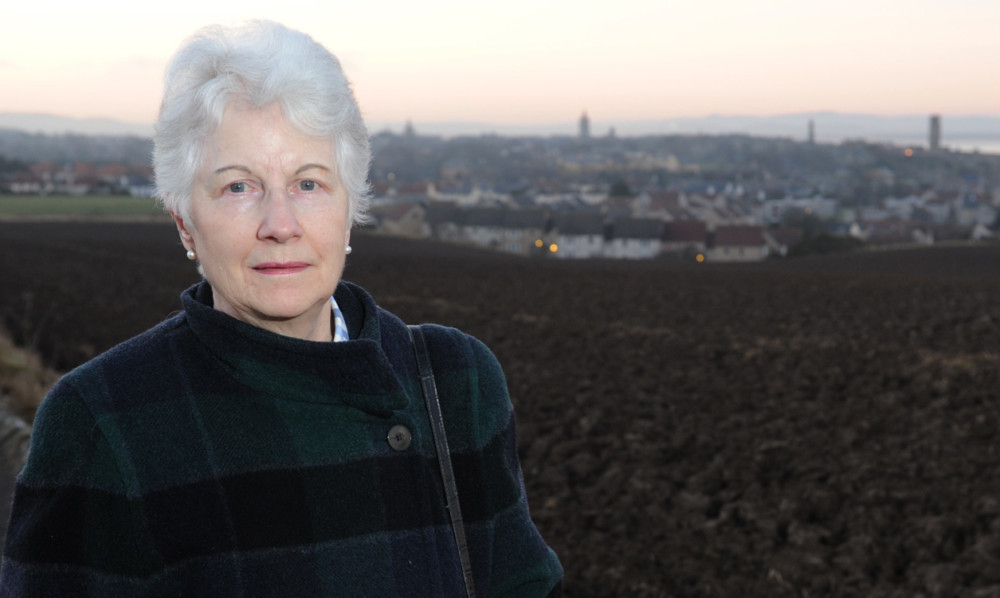A St Andrews pensioner has lost her David v Goliath struggle to protect her beloved home town from a “tsunami” of development and now faces a legal bill of at least £173,000.
Veteran campaigner Penny Uprichard had her case heard by the UK Supreme Court in London at the start of March.
She previously failed twice to convince Scottish judges in the Court of Session in Edinburgh that they should stop Scottish Government-approved plans to allow builders to increase the size of St Andrews by up to a quarter.
Now five Supreme Court Law Lords have unanimously dismissed Miss Uprichard’s legal challenge against proposals for a minimum of 1,000 houses, business and science parks and distributor road on the western edge of the town.
The proposal was previously granted permission as part of Fife Council’s 20-year planning blueprint. In a hard-hitting judgment, Law Lords said the case was “not an appropriate use of the time of this court”.
They also fired a shot across the bows of the legal fraternity to bear in mind the privileges they do have and to act accordingly.
It stated: “This appeal turned on the construction of particular documents. Although of importance to those affected by the outcome, the appeal did not on examination raise any arguable point of law of general public importance.”
A Scottish Government spokesman said: “Scottish ministers welcome the announcement of the Supreme Court’s decision to dismiss this appeal.
“The court’s decision underlines the validity of the strategy contained in the Structure Plan and the rigorous process of approval by Scottish ministers.”
Miss Uprichard said in a statement: “The decision by the Supreme Court to refuse my appeal against the Fife Structure Plan means that St Andrews and its landscape setting are now likely to be overwhelmed by development, with the views of unelected officials taking precedence over those of residents.
“The only positive note I can take out of this is that at least the uncertainty of the last four years is over.
“The judgment does not seem to reflect the questions put forward in court. The opinion of the judges that the case should not have been brought is at variance with the fact that the court gave me a protective costs order, indicating that there was a case to be heard.
“In view of this decision, it seems unlikely that anyone will be able to try to protect landscape through the legal system.
“It is also clear that the ‘rights’ of third parties are given a very low priority by local authorities, ministers and judges.
“I believe the system has become almost totalitarian, where there is little opportunity to question, much less oppose, proposals by officials at all levels.
“To be unable to challenge decisions, except by risking enormous amounts of money, is not democracy.”
